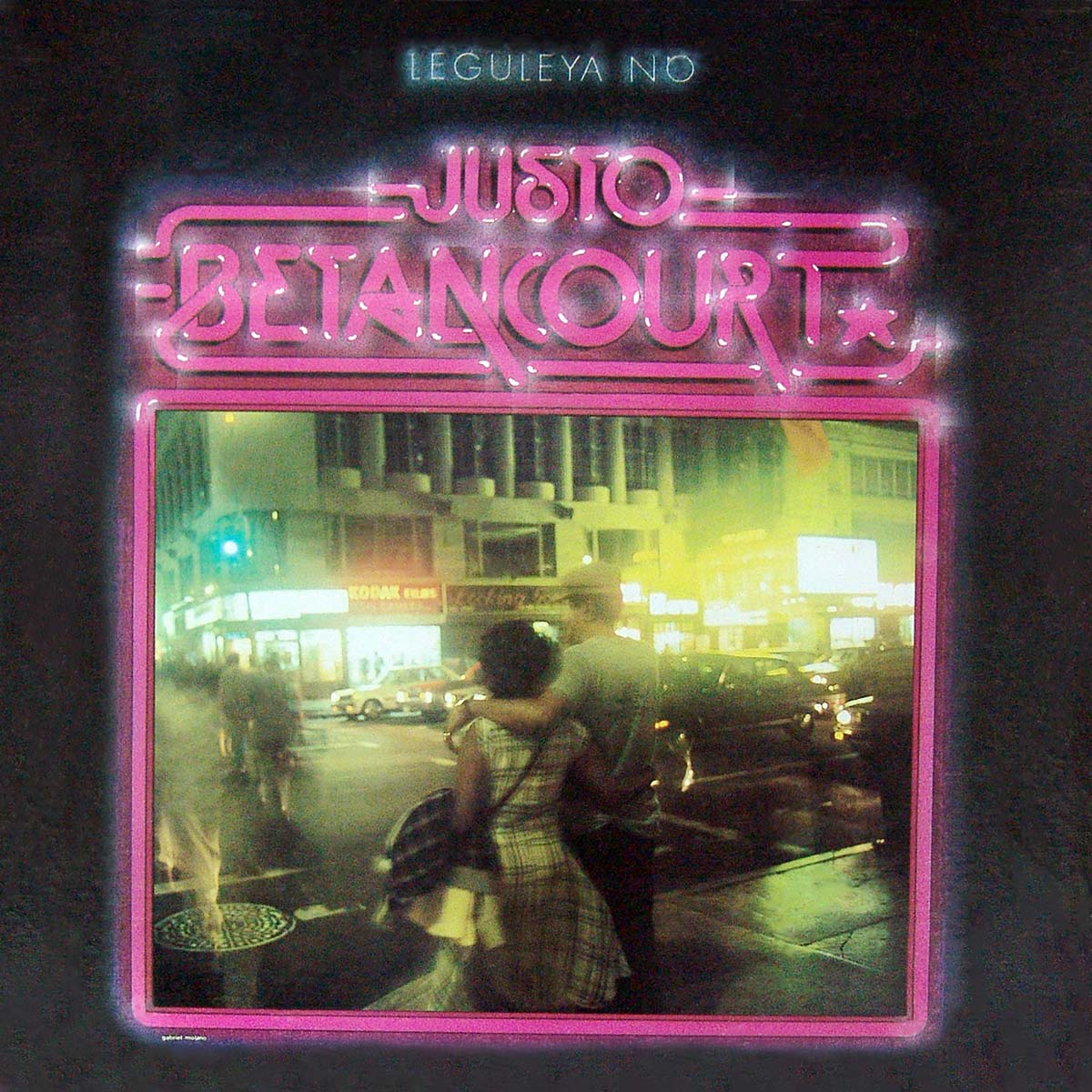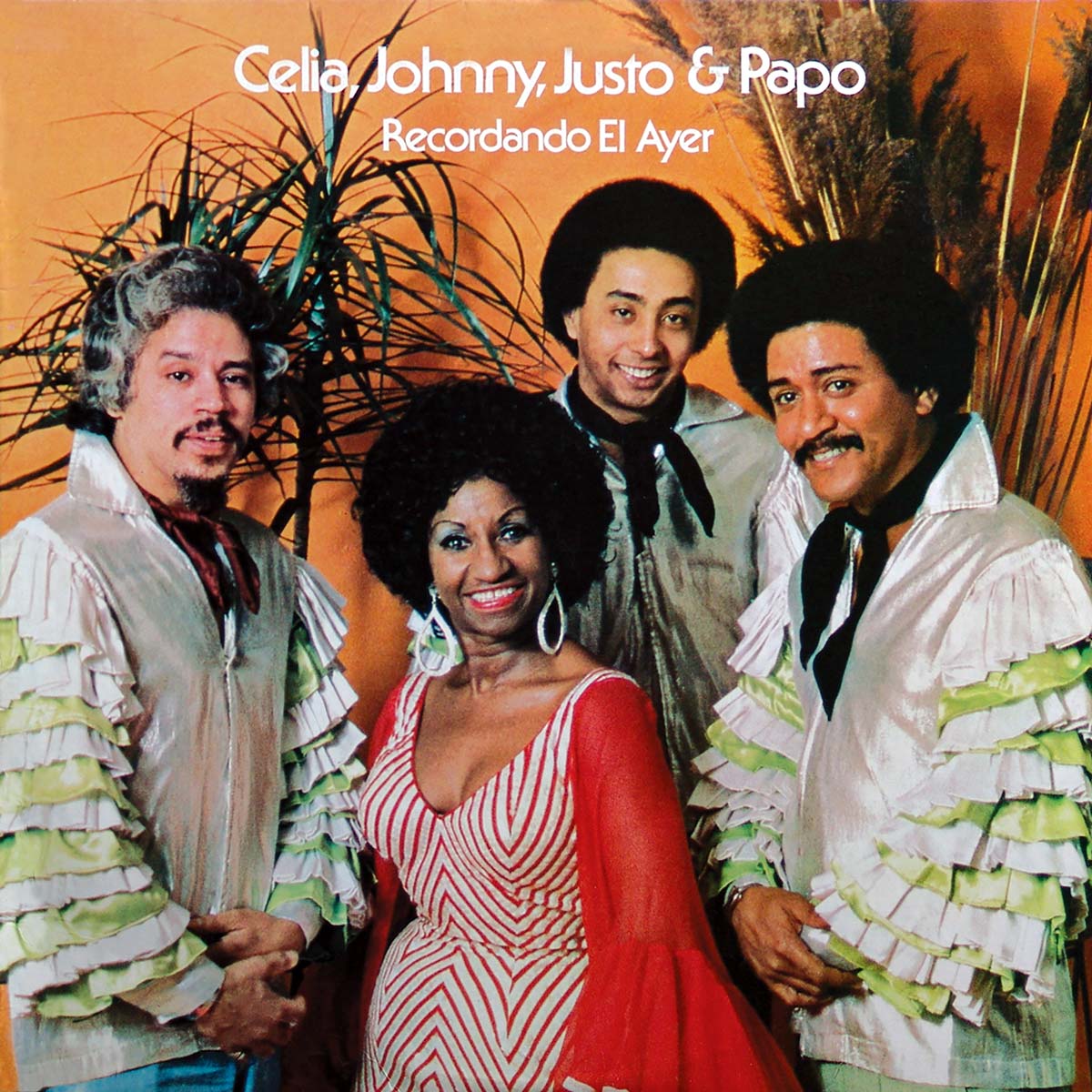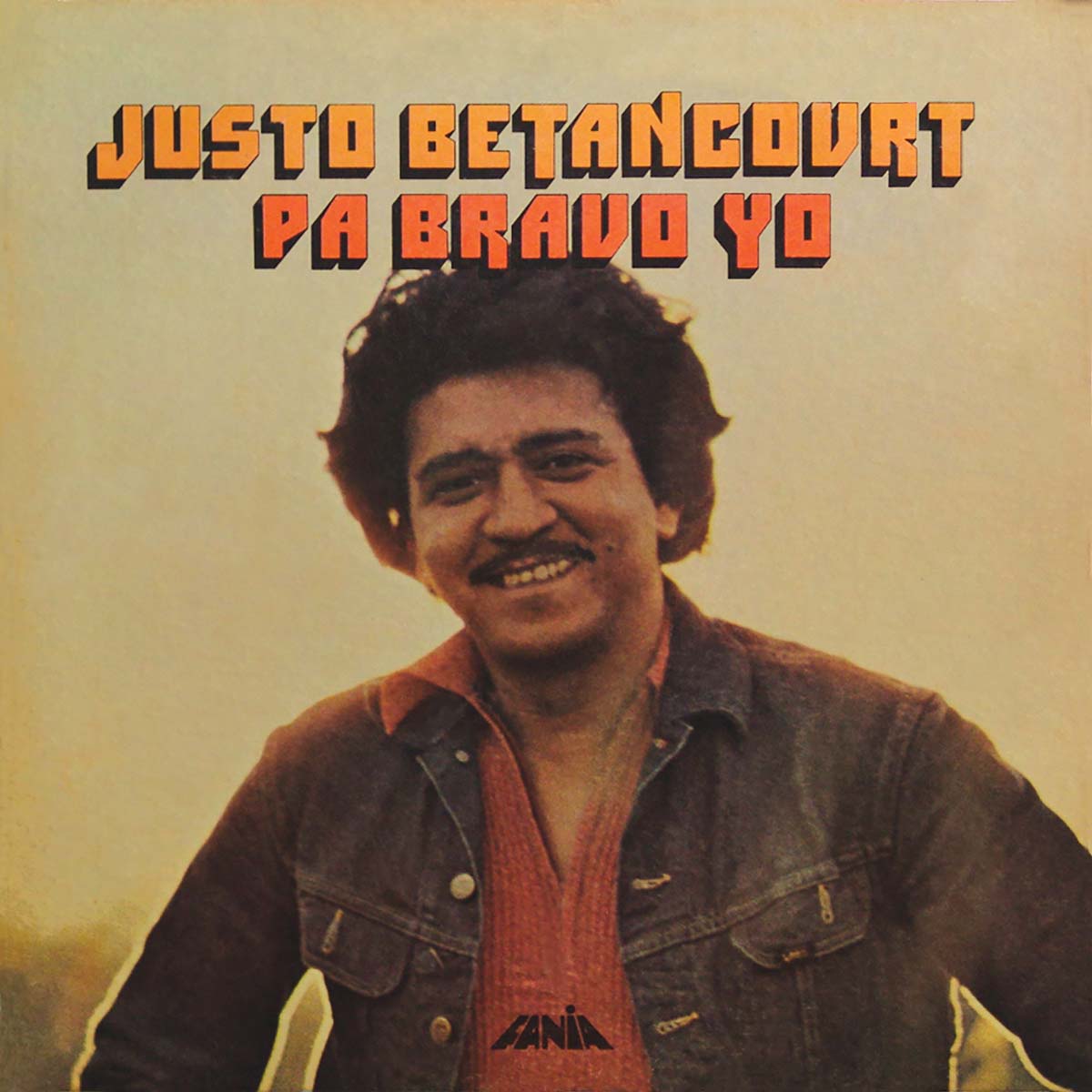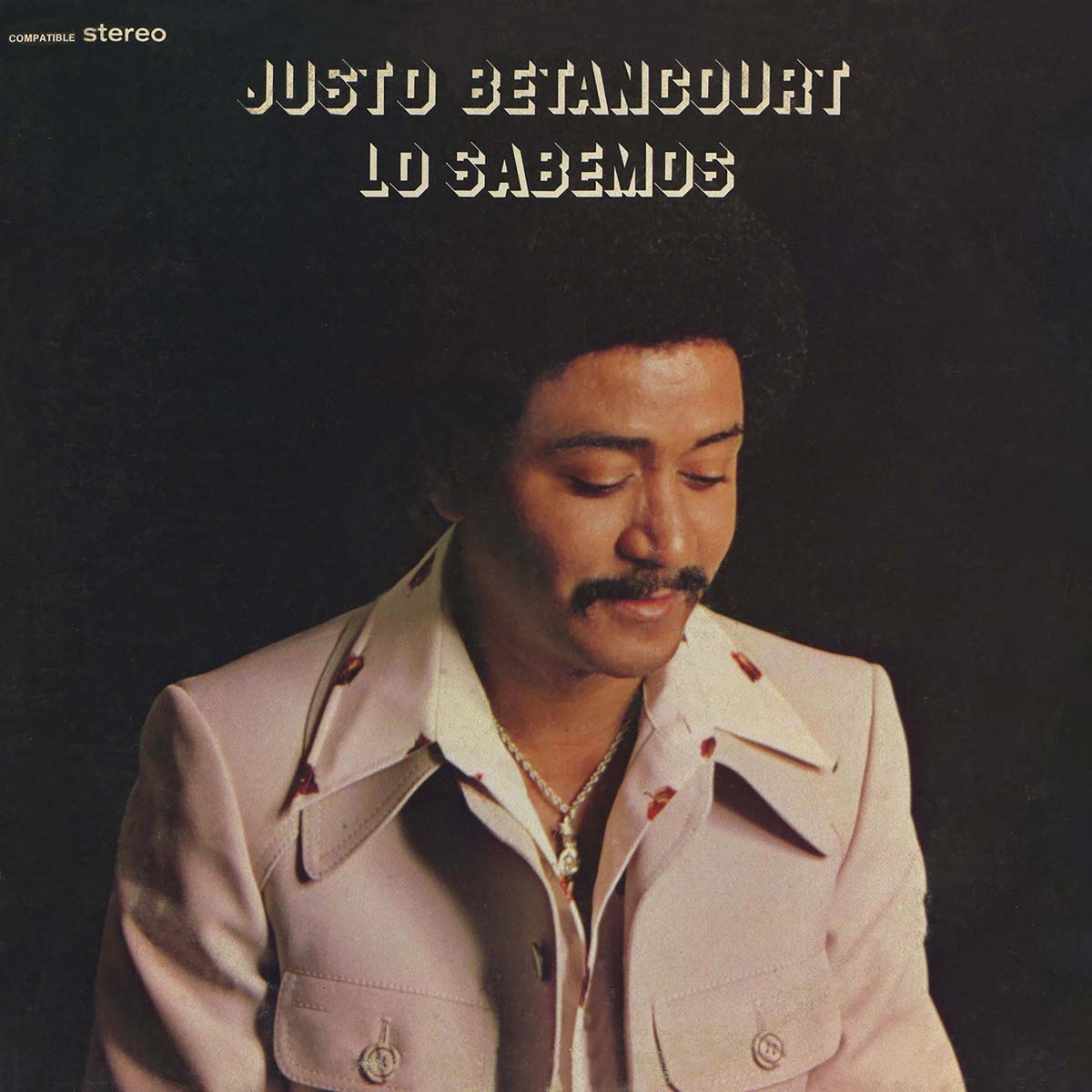
The Distinctive and Different Justo Betancourt
In his heyday, Justo Betancourt’s lyrical spontaneity and creativity, plus his ability to sing in a variety of styles with equal expertise, earned him the reputation of being a “singers’ singer”. He punctuates his vocals with catchphrases like “Distinto y Diferente” (Distinctive and Different), which was also the title of his 1977 album on Fania Records. Born in Cuba on December 6th 1940 into a musical family, at the age of 11 he sang with a small group called Cabeza de Perros named after the brand of beer that sponsored them. At 16 he sang with the popular group Guaguancó Matancero. In 1958 he began singing with Conjunto Club and recorded the 45 “Para Gozar Cubita” with them on the Fama label.
He left Cuba in 1964 and spent eight months in Greece before moving to New York. There he worked with bandleader and timbales player Orlando Marín for two years, and appeared on his Top 10 album Esta En Algo (1967) on the Fiesta label. On this album he sang the original version of the Tony Rios composition “Aprende A Querer” which became a hit again in 2003/4 when the Spanish Harlem Orchestra covered the number on their Grammy-nominated album Un Gran Dia En El Barrio on Ryko / Ropeadope Records. He sang with the band of Fania Records co-founder Johnny Pacheco for two weeks before becoming a vocalist with La Sonora Matancera, appearing on their mid-’60s album Presentando El Nuevo Sonido Fabuloso De La Sonora Matancera on Seeco Records.
In 1968 he was signed as a solo artist to the Fania Records label. His debut album was El Explosivo (1968), but it was not until Los Dinamicos (1971), a collaboration with Pacheco, and his 1972 Pa Bravo Yo, that his popularity really started to grow. The title track of the latter, written by Ismael Miranda, became his trademark. In addition to making six more solo albums for Fania between 1974 and 1982, he recorded with Larry Harlow, Fania All Stars, Mongo Santamaría, Celia Cruz, Papo Lucca, La Sonora Matancera and Tito Puente.
In 1972 he took up residence in Puerto Rico, where he made his 1977 and 1978 albums with his own 13-piece band Borincuba (the name representing the union of Puerto Ricans with a Cuban); however the success of a Cuban artist on the island, as well as his abrasive personality, created enemies. In 1978 Justo handed lead vocals over to Borincuba’s chorus singer Tito Rojas on the band’s penultimate album. Rojas became a major salsa romántica star in the 1990s with a string of huge hit albums.
1982’s Leguleya No was Justo’s final solo project for Fania, recorded in New York. The duplication of credited personnel listed on the original album jacket suggests that the material was recorded over more than one date. Though the flute is a key component of the band’s sound, only trumpeters and a trombonist are credited. The set opens with “De Madrugada”, an awesome interpretation of “Son De La Madrugada” written by Adalberto Alvarez, then leader of Cuba’s exciting Son 14. During the song, Justo identifies the flautist as Nestor Torres. In a similar fashion, Justo names the un-credited trumpet soloist on “Las Leyes” and “Muellero” as “Perico”, in other words, the acclaimed bandleader and arranger Luis “Perico” Ortiz. “Muellero” begins at a medium pace, then really takes-off with quick-fire flute phrases flying above the horns.
Another mover, “Aquí Si Hay Hispanos”, features a soaring flute solo. A highlight of the outstanding “Tu Veras Que Rico Es” is a solo from Cuban pianist Alfredo Rodríguez, who relocated to Paris the following year. For the percussion-heavy title track Justo plays claves (twin wooden strikers), the small quinto drum and campana (cowbell) and the band is augmented by a group of tambores, sacred batá drum and chekere (rattle) players including Daniel Ponce, who had arrived from his native Cuba in 1980 and was flavour of the moment. Justo changes the mood with “Sin Motivo” and “Ven Pronto”, two finely executed boleros:
To date, Justo’s only album after Leguleya No has been the 1990 comeback project Regresar on his own RMQ label. In 1993 he was amongst the soneros who performed on the critically acclaimed Descarga Boricua on Tierrazo.
Musicians:
Hector “Bomberito” Zarzuela – Trumpet
Felix “Junior” Vega – Trumpet
Pedro “Puchi” Boulong – Trumpet
Leopoldo Pineda – Trombone
Sonny Bravo – Piano
Alfredito Rodriguez – Piano
Elpidio Vazquez Jr. – Bass/Guitar
Joe Santiago – Bass
Vincent Bell – Guitar
Joe Grajales – Conga
Tommy “Choki” Lopez – Bongo/Quinto on 4
Nicky Marrero – Timbal
Stlaton Ellautt Howlett – Timbal
Junior Gonzalez – Maracas
Justo Betancourt – Clave/Quinto and Campana on 6
Javier Vazquez – Celesta on 1
Chorus: Justo Betancourt, Adalberto Santiago, Cali Aleman, Victor “Panama” Del Rosario, Zilma Caraballo
Special Performance by Daniel Ponce – Lead on Tambores, Bata and Chekere
Gustavo “El Matancero”
Carlos Cordova
Arrangements and Musical Directors: Ray Santos and Javier Vazquez
Engineers: Irv Greenbaum and Alfredo Li
Mix: Irv Greenbaum, Justo Betancourt
Photography: Joe Grajales
Cover Design: Gabriel Molano
Produced by: Justo Betancourt
Written by John Child





